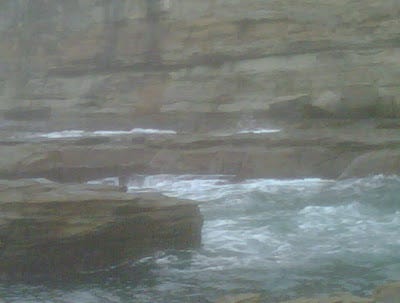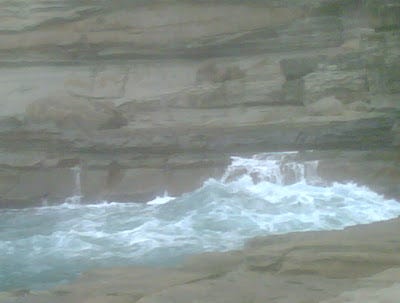*

"This is a private matter, Archer." The gun stirred slightly in the Admiral's hand. I could feel its pressure across the width of the room. "Do as she says."
"I heard a shot. Murder is a public matter."
"There has been no murder, as you can see."
"You don't remember well."
Ross MacDonald

It wasn’t darkness for darkness sake, it was a torment he couldn’t escape; and so entered the valley under the illusion he was fighting for a better life. That’s what cruelled it in the end; there was no reward. Snakes sat in their offices, rewarding themselves. The labourers fought for survival; and were always down trodden. Was it just a failing psyche? A failure of command? Or something worse, more misshapen, more confused than ever. He was shocked by the blackness; the rapidity of it all. And the corny voices trying to make him laugh. And fading life forms prodding, prodding, as if they really meant something, as if they could make a difference.
There was no difference to be had; not now. He fought and he fought; nobody could have tried harder. And yet none of it worked. None of it made a difference. He was shattered by it all; shattered at the nastiness that everything had become; and here in the quiet times there was no relief; nothing that could make him feel better. Nothing that worked. And so he saw the red dust settle upon the city; the magnificent photographs of the Harbour Bridge emerging out of the haze; of bodies emerging out of the haze along the beach, of a slow and awkward recovery; of different shapes and different sizes.
Scattered spirits; that’s all he could say. It wasn’t life affirming. It was barely positive at all. He had frightened himself and the doctor had issued a dark warning: you’re about to have a stroke, go home. It was all he could think of, to survive. His life had taken a detour; everything thrown up in the air; and he thought - could I be in love with you? I’m so out of practice I don’t even know how anymore. And they laughed and played Van Morrison and everything he had ever believed went swishing down the drain; a swirl of leaves in the hot dusty wind.
It was a day that made the planet look like Mars. People stood along the edge of the beach taking photographs; as every minor event these days was multiply digitalised. He was shattered and yet all these strange sparks were trying to revive him. Look at that, look at that, he could hear the tourists say, it looks like Mars; and indeed the dust from the centre of the continent was everywhere, in the air, on the ground, covering up shadows and calling, calling, just to reignite a simple appreciation of beauty, how hard could it be?
They all look 50 years younger and 50 times happier, he said, talking of the backpackers flooding into the Eastern suburbs, filling the shops and crowding the boulevard. It could hardly be a more different scene than his forced departure from the inner city, from Redfern where he had lived for the past eight years; all the years he had been in his 50s. He had settled into the place like they were born to be there; and it seemed so natural; their little gang, their house, the scenario; it all seemed, apart from the absence of love, exactly like it was meant to be.
And so when everything was thrown up in the air; when his comfortable, organised, productive life was turned upside down; he had expected some reward. Reward for effort; wasn’t that the mantra? He laughed. As if he could have been so naïve. Why such a fool? Why let them trick you like this? Why bust a gut simply to be sneered at; you’ll never be worth anything, you’re not management material. He was shocked at how awful they were; the bold brass tacks. The bristling contempt. The viciousness that only they could muster.
He remembered; how vivid had been those dreams, of walking, in another life, on another plain, through the Himalayan hills. Finding out what he had been too lazy to grasp; the awe of it all, the beauty of the day, the triumphant glance. Instead, ground down in the devastating grind of a city gone mad, of an imposed slavery, of subjugation and a despair he could never be rid of; it wasn’t that; it wasn’t anything anymore. It was a shrug; as if nothing was real, as if nothing was important anymore. There were stories to tell, but were they really worth telling, were they worth dying for? They danced to Van Morrison and he avoided kissing her; what was wrong with her? Nothing. Nothing, except she was old, like him.

THE BIGGER STORY:
http://www.brookings.edu/opinions/2009/1015_nobel_prize_economics_kaufmann.aspx
Four judges have spoken out to defend the awarding of the Nobel Peace Prize to US president Barack Obama.
In a rare public defence of a process normally shrouded in secrecy, the judges said Mr Obama's selection was deserved and unanimous.
One judge noted with surprise that Mr Obama "didn't look particularly happy" at being named the Nobel Peace Prize laureate. Another marvelled at how critics could be so patronising.
To those who said a Nobel was too much too soon in Mr Obama's young presidency, "we simply disagree. He got the prize for what he has done," committee chairman Thorbjorn Jagland said from Strasbourg, France, where he was attending meetings of the Council of Europe.
Mr Jagland singled out Mr Obama's efforts to heal the divide between the West and the Muslim world and to scale down a Bush-era proposal for an anti-missile shield in Europe.
"All these things have contributed to - I wouldn't say a safer world - but a world with less tension," he said.
Nine-year Nobel committee veteran Inger-Marie Ytterhorn said Mr Obama's demeanour spoke volumes when he first acknowledged the award during a news conference on the lawn of the White House Rose Garden.
"I looked at his face when he was on TV and it was confirmed that he would receive the prize and would come to Norway, and he didn't look particularly happy," she said. "Obama has a lot of problems internally in the United States and they seem to be increasing. Unemployment, health care reform. They are a problem for him."
She acknowledged there was a risk the prize might backfire on Mr Obama by raising expectations even higher and giving ammunition to his critics.
"It might hamper him," Ms Ytterhorn said, because it could distract from domestic issues.




